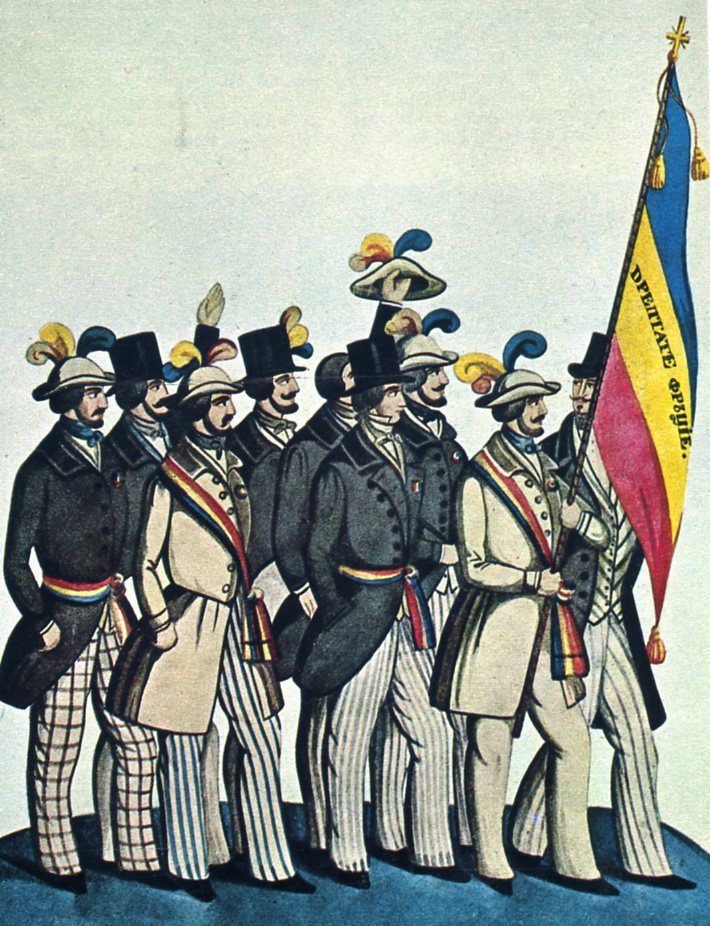
The civil rights of Romanian Jews had been dealt with, in Romania and abroad, for generations, and had been therefore subject to many changes. The leadership of the 1848 Revolutions in Wallachia and Moldova, had called for emancipation of the Jews and politicl equality, and although they suffered a shattering defeat; for the first time Jews ceased to be perceived as just being a religious entity detached from politics and from society as a whole. Therefore, 1848 is seen as the beginning of the struggle for emancipation. In 1859, the unification of the principalities led to a legislative regulation of the Jews' status in Romania, which over time led to profound changes that had a major impact on their lives.
Contrary to the trend that was developing throughout Europe, various governments in Romania refused to grant the Jews full civil rights. The Italian Jewish statesman, Luigi Luzzatti, who intervened on behalf of Romanian Jewry at the beginning of the 20th century, described them as being "the last slaves in Europe".
When the Romanian government was forced by the European powers to regulate the status of the Jews, the government attempted in various ways to reduce these rights. and whenever regional political constellations allowed it, they acted to abolish the citizenship of Romanian Jewry. Thus, the ground for the emergence of the racial and anti-Semitic legislation that facilitated the Holocaust in Romania was prepared.
During this period of struggle for the unification of the principalities and liberation from foreign influences, Ottoman and Russian, the Jews had some hope of receiving full civil rights. In 1848 the revolutionaries announced their intention to grant emancipation to the Jews and equal rights for residents of all religions. After this revolt was suppressed, the situation of the Jews worsened, but after Ottoman rule returned in 1856, a decision taken at the Paris Conference required the Princes to grant the Jews civil rights. This article was not respected, but Jews were once again allowed to settle anywhere and even to buy land.
During the reign of Alexandru Ioan Cuza, the Jews were promised that they would be given the right to vote for municipal councils, but this promise was broken after Cuza was removed from power. When King Carol I came to power in 1866, a new constitution was proposed, in which the right of Jews to receive citizenship was mentioned. This section of the constitution led to large opposition demonstrations, and was eventually omitted,at which time persecution of the Jews resumed.
At the Peace Conference in Berlin, after the Independence War of 1877, the European powers stipulated in Articles 43 and 44 of the treaty of Berlin in 1878 that recognition of Romanian Independence was to be conditioned on the grant of citizenship and political rights of the Jews. Decisions were made requiring Romania to recognize the civil rights of the Jews and to remove economic restrictions that were imposed to them.
Romania signed this agreement but did not honor it. After the 1878 Conference the Romanian government decided that anyone who was not Christian could obtain citizenship provided that the two Houses of Parliament approved each request separately. In the thirty-five years before World War I, only 2.000 Jews were granted Romanian citizenship, out of a population of about 250,000.